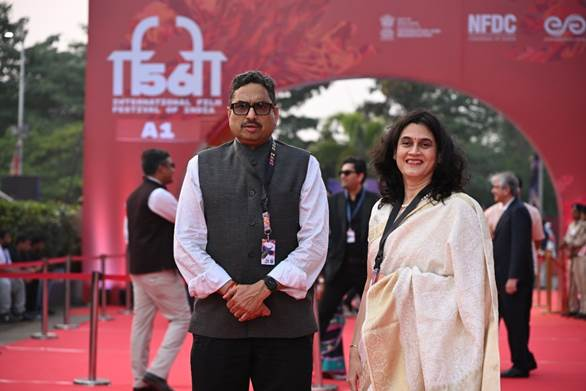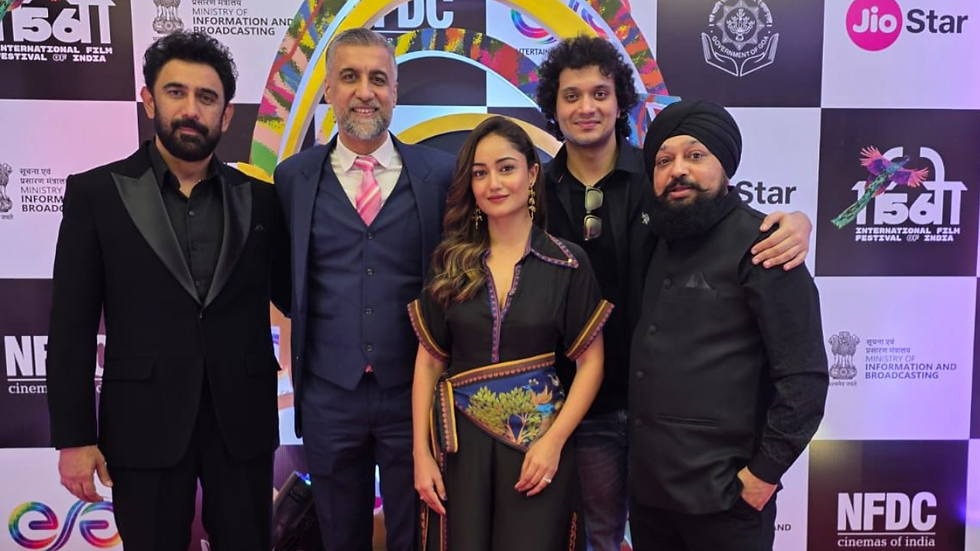Updated: Dec 2, 2025
Pritish Bagdi

Thaliva Rajnikanth

Director Rakeysh Omprakash Mehra

Actor Ranveer Singh

Actor Nawazuddin Siddiqui

Chief Minister of Goa, Shri Pramod Sawant

MD NFDC Shri Prakash Makduu

MoS MIB Shri L. Murugan

Secretary MIB Shri Sanjay Jaju with his wife Jyoti Somani

Actor Rishab Shetty

Amit Sadh, And Cast Introduce Akhri Sawal Teaser At IFFI Closing Event
#iffi #iffi2025 #event #entertainment #nfdc #esg #informationandbroadcast #redcarpet #ceremony #celebrity





